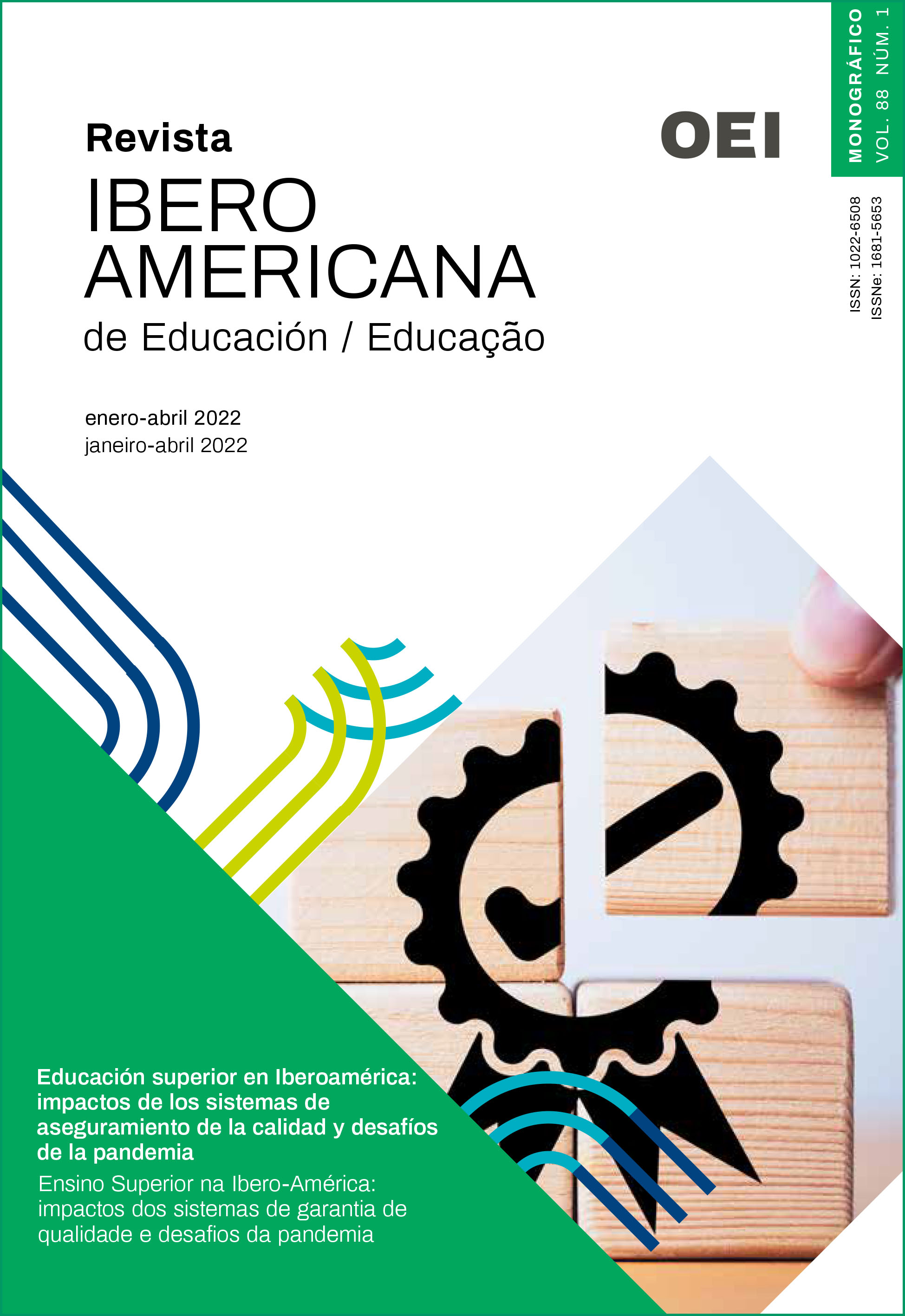Competencies in university teaching staff derived from the impact of COVID-19
DOI:
https://doi.org/10.35362/rie8814823Keywords:
teaching skills; teaching; learning; COVID-19; educationAbstract
The Covid-19 pandemic has challenged the ways of working, living and producing in the world. It is a recurring theme in HEIs in order to maintain quality, and at the same time, it has produced essential transformations of innovation, in search of greater effectiveness and efficiency. The objective is to determine the impact of the Covid-19 pandemic on the key competences tested in HEIs by university lecturers and their current state on the basis of a scientific diagnosis of the methodological preparation of university lecturers. The methodology used is mixed, combining theoretical and empirical methods. The results reveal the current state of the competencies of university teachers to face the challenges of the pandemic and the fundamental impacts that the pandemic has had on the competencies of university teachers, which constitute the starting points for working in conditions of social isolation, confinement and lack of personal contact between teacher-student. The theoretical, methodological and practical importance of the research lies in these results. Finally, the discussion and conclusions are presented with a synthesis of important knowledge for dealing with far-reaching changes and methodological and technical innovations in higher education.
Downloads
References
Aguilera-Hermida, P. (2020). College students’ use and acceptance of emergency online learning due to COVID-19. International Journal of Educational Research, 366-374. https://doi.org/10.1016/j.ijedro.2020.100011.
Dwivedi, Y., Hughes, L., Coombs, C., Constantiou, I., Y. Duan, Y. & Edwards, J. (2020). Impact of COVID-19 pandemic on information management research and practice: Transforming education, work and life. International Journal of Information Management, 55. https://doi.org/10.1016/j.ijinfomgt.2020.102211
Facultad de Ciencias Médicas «10 de octubre» (2018). Guía para elaborar una Revisión bibliográfica. Recuperado de https://instituciones.sld.cu.
Garrido, C., Garrido, A., Álvarez, P. y Vargas, S. (2021). Competencias digitales para la industria 4.0. Efectividad del proceso de virtualización de un laboratorio de Metrología en la carrera de Ingeniería Mecánica. EDUTEC. Revista Electrónica de Tecnología Educativa, 76, 197-211. https://doi.org/10.21556/edutec.2021.76.1923.
Garzón-Daza, C. (2021). Las competencias docentes en el siglo XXI de cara a la virtualidad de la Educación con ocasión del Covid-19 . Revista Boletín REDIPE,10(5), 177-188. https://reista.redipe.org/index.php/1/article/download/12995/1203.
Granma (24 de marzo de 2021). Nuevas medidas para enfrentar a la COVID-19. Recuperado de https://www.granma.cu/cuba-covid-19/2021-03-24.
Jiménez-Guerra, Y. y Ruiz-Gonzáles, M. D. (2021). Reflexiones sobre los desafíos que enfrenta la Educación superior en tiempos de covid-19. Economía y Desarrollo, 165(1), 1-15. https://bit.ly/3gU9Vow.
Krishnamurthy, S. (2020). The future of business education: A commentary in the shadow of the Covid-19 pandemic. Journal of Business Research, 117, 1-5. https://doi.org/10.1016/j.jbusres.2020.05.034.
Leal-Filho, W. (2021). Covid-19, Sustainable development and higher education: towards a recovery path. Journal of Sustainability in Higher Education, 138-141. http://doi.org/10.1108/IJSHE-10-2020-0364.
Martínez-Angulo, M. R., Álvarez-Dorta, L., Yaque-Villegas, E. L., Hernández-Pardo, I. y Rodríguez-Díaz, Z. (2013). Manual de técnicas de exploración piscólógicas. Pueblo y Educación.
Rieble-Aubourg, S. y Viteri, A. (2020). Hablemos de Política Educativa en América Latina y el Caribe. División de Educación y desarrollo social del Banco Interamericano de Desarrollo.
Ruiz-Cuellar, G. (2020). Covid-19: pensar la educación en un escenario inédito. Revista Mexicana de Investigación Educativa, 25(85), 229-237. https://bit.ly/3rQGlqh.
Sierralta-Pinedo, S. (2021). Competencias digitales en tiempos de COVID-19, reto para los maestros de la institución educativa CECAT “Marcial Acharán”. Revista Mendive, 19(3), 755-763. https://bit.ly/3oOhPUY.
Tzivinikou, S., Garifalia, C. & Kagkara, D. (2021). Distance education attitudes (DEAS) during COVID 19 crisis: Factor structure, reliability and construct validity of the brief Dea scale in greek-speaking SEND teachers. Technology, Knowledge and Learning, 26(3), 461-479. https://doi.org/10.1007/s10758-020-09483-1.
Vite-Cevallos, H., Carvajal-Romero, H., Samaniego-Ocampo, R. y Prado-Ortega, M. (2020). Competencias virtuales de los docentes frente al reto de COVID-19 en instituciones de Educación Superior en Ecuador. Revista Conrado, 16(1), 178-183. https://bit.ly/3rQm8RG
Yao, J.-X. & Guo, Y.-Y. (2018). Core competences and scientific literacy: the recent reform of the school science curriculum in China. International Journal of Science Education, 40(3), 1913-1933. https://doi.org/10.1080/09500693.2018.1514544.
How to Cite
Published
Issue
Section
License
Any authors who publish with this journal accept the following terms:
















